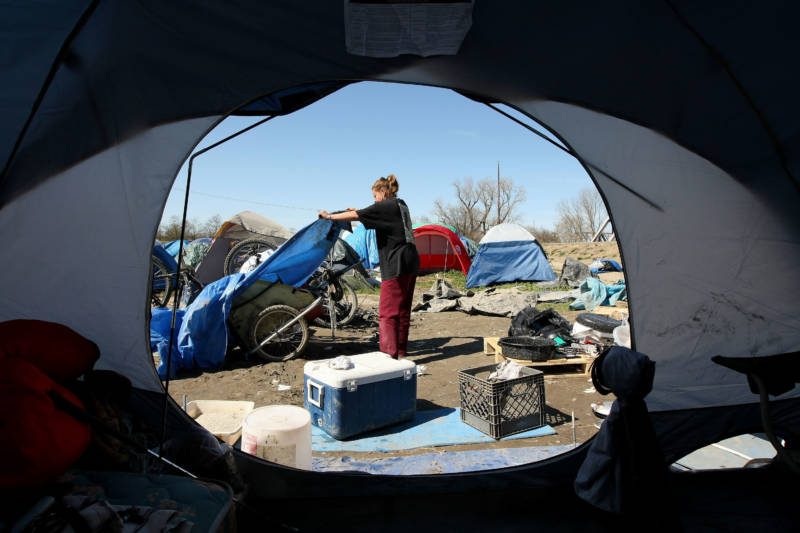As to solutions, one-third of those polled “strongly favor” the state’s recent $15/hour minimum wage bump approved by the state Legislature in March. Another 26 percent “somewhat” favor the pay increase.
“You could simultaneously view poverty as a problem but not want to raise the minimum wage,” said Barker. “The more conservative (people) would say there needs to be less regulation to free up the markets so more people can get hired.”
The hike in the state minimum wage came nearly a year after the Los Angeles City Council and Los Angeles County Board of Supervisors passed $15/hour minimum wages of their own.
[MinWagePoll]
Robert Nothoff, of the Los Angeles Alliance for a New Economy, said those efforts were driven in large part by the L.A. region’s large pool of
“It was really the immigrant community pushing, telling us what it takes to make ends meet and leading the charge to raise the bar for all workers across the state,” said Nothoff.
Respondents to the CALSPEAKS survey were split over the broader question of whether immigrants (from Asia and Latin America specifically) help or hurt the state's economy.
The poll found that 38 percent believe immigrants weaken the economy “a little” to “a lot,” while 47 percent believe immigrants strengthen the economy "a little" or “a lot.”
[ImmigrationPoll]
When it comes to illegal immigration specifically, 45 percent of respondents say it’s a “major” problem. Another 29 percent view it as a “minor problem,” while 23 percent think it’s little to no problem at all.
Editor's Note: This story has been updated to include additional information regarding the methodology of the survey.
California Counts, a statewide public media election collaborative, contracted with the CALSPEAKS Opinion Research Center at the Institute for Social Research, Sacramento State University, to conduct an extensive survey of Californians’ electoral and public policy attitudes.
The Institute for Social Research at Sacramento State fielded the survey online and through the mail from Aug. 15 to 24, 2016 using the CALSPEAKS survey panel. It yielded 915 completed surveys and 44 partially completed surveys. CALSPEAKS obtains a representative sample of Californians, stratified by the five major regions in the state. For information on the methodology, please visit: http://www.csus.edu/isr/calspeaks/. For questions about the November election, (the U.S. Senate race and propositions 57, 63 and 64), results reflect registered voters only.
The margin of error for any individual survey question is equal to or less than +/- 4 percentage points for the overall sample. However, the margins of error are larger if focusing on smaller subgroups, especially racial or ethnic subgroups. These are equal or less than +/- 16 percentage points for African-Americans, and 10 percentage points for Latinos or those of "other races/ethnicities" (including Asian-Americans, Pacific Islanders, Native Americans, and those of mixed race/ethnicity). The numbers, however, have been weighted to reflect California¹s population and are valid for comparisons across the sub-groups.
California Counts is a collaboration with four public media organizations in California to cover the 2016 election. This includes KPCC in Los Angeles, KQED in San Francisco, Capital Public Radio in Sacramento and KPBS in San Diego.
